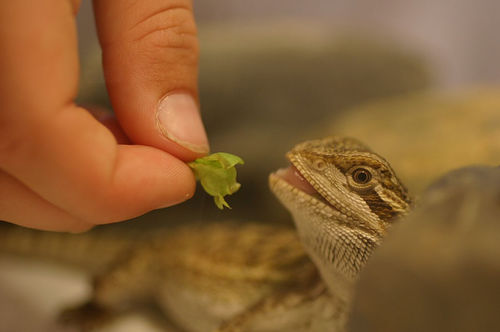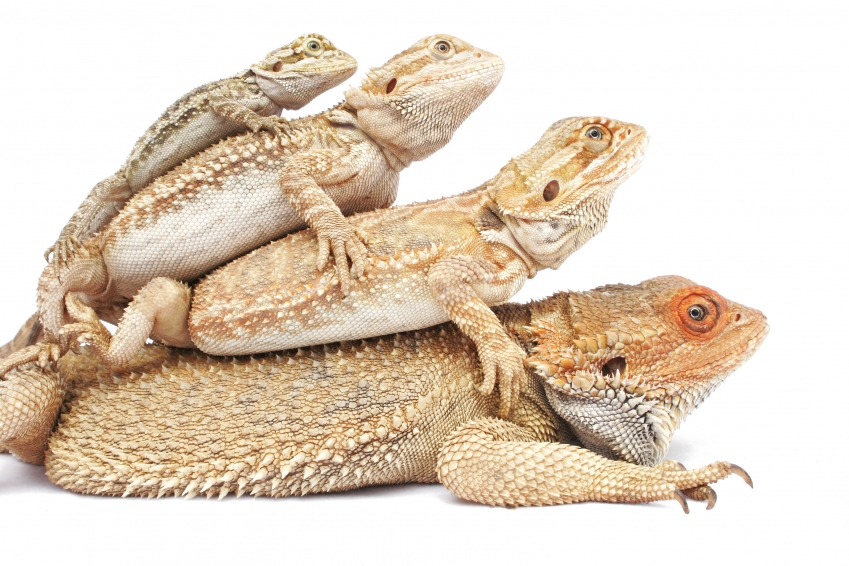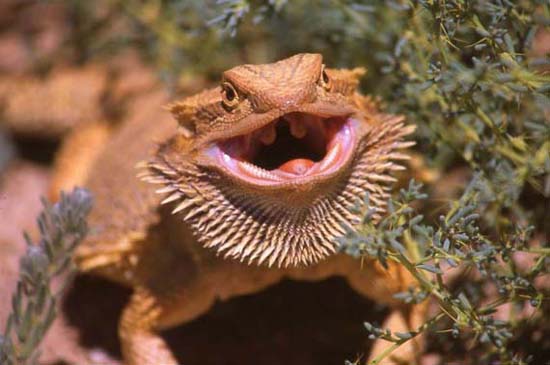Everything You Need to Know About Desert Bearded Dragons
Everything You Need to Know About Desert Bearded Dragons
Are you thinking about getting a desert bearded dragon as a pet? These lovable reptiles make great companions for anyone who is interested in keeping a reptile as a pet. Desert bearded dragons are also known as Pogona vitticeps, and they are native to the deserts of Australia. They are easy to care for, and they make great pets for beginners.
Appearance
Desert bearded dragons have a distinctive appearance that sets them apart from other lizards. They are medium-sized lizards that can grow up to 2 feet. They have a triangular-shaped head with a beard-like flap of skin under their chin that they can puff up when threatened. Their skin is bumpy and rough to the touch, and they have sharp claws that they use to climb and perch on rocks and logs.
Habitat
Desert bearded dragons are native to the deserts of Australia, and they are well adapted to living in extreme heat and dry conditions. As such, they require a warm and dry environment to thrive. In captivity, they require a terrarium that is at least 36 inches long, 18 inches wide, and 18 inches tall. The terrarium should have a basking spot with a heat lamp that provides a temperature of 95 to 100 degrees Fahrenheit during the day and a cooler spot with a temperature of 75 to 85 degrees Fahrenheit during the night.
Diet
Desert bearded dragons are omnivores, which means that they eat both plants and animals. In captivity, they should be fed a diet that consists of insects, such as crickets and mealworms, and vegetables, such as kale and collard greens. It is important to provide them with a varied diet to ensure that they get all the nutrients they need to stay healthy.
Behavior
Desert bearded dragons are docile creatures and make great pets for beginners. They are active during the day and sleep at night. They enjoy being handled and can become quite affectionate towards their owners. They are also social creatures and can be housed together as long as they are of similar size and temperament. However, it is important to supervise them when they are together to prevent any fighting or other aggressive behavior.
Common Health Issues
Like all pets, desert bearded dragons are susceptible to certain health issues. One of the most common health issues is metabolic bone disease, which is caused by a lack of calcium and vitamin D in their diet. Other common health issues include respiratory infections, parasitic infections, and dehydration. It is important to take your desert bearded dragon to a veterinarian who specializes in reptile care if you suspect that they are ill.
Conclusion
Desert bearded dragons are great pets for beginners who are interested in keeping a reptile as a pet. They are easy to care for, and they have a friendly disposition that makes them great companions. With the right diet, habitat, and care, your desert bearded dragon can live a long and healthy life.








